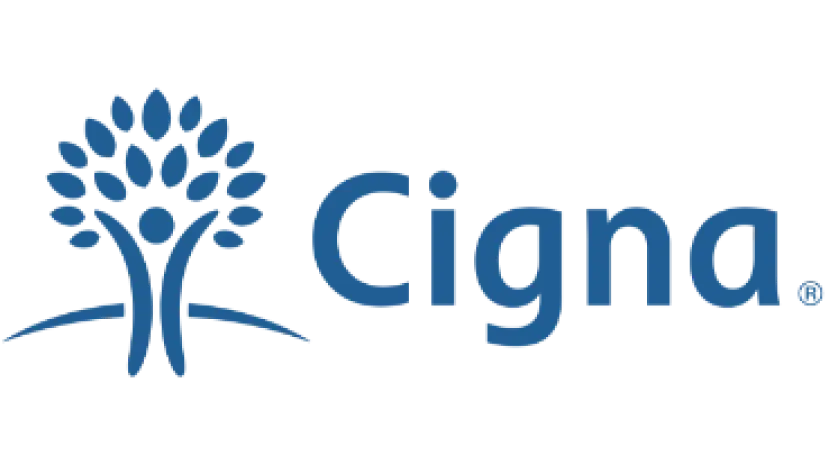


Updated: Dec. 11, 2023 at 10:59 AM PST
View on the CBS 11 Website
Steve Carleton, Chief Clinical Officer of the Front Range Clinic, discusses your options for finding the best addiction treatment center to suit your needs.
I want to thank you for joining us in the 11 breaking news center. I’m Lauren Watson, your digital anchor here at KKTV 11 News. I’m here today with Steve Carleton. He is the Chief Clinical Officer of Porch Light Health and Front Range Clinic. Steve, you know, this month, we wanted to talk a little bit about finding the right treatment center for you or a loved one now. How do you know when it’s time to find treatment?
It’s a great question. When we’re talking about substance use disorders and when people start to develop problems, the first thing to consider is a person’s readiness to receive help and care. So along the path of sort of developing a substance use disorder, people will naturally try and cut back and quit on their own, and it’s when people are struggling to do that independently, on their own, when you’re realizing this is a bigger problem than maybe I thought it was that, that is a good time to start seeking additional help and support and making some changes.
Now, what types of treatment are available?
There’s a huge gamut of different types of treatments available. I think when people are thinking about this, there’s everything from peer support programs like 12 Step and other types of AA meetings and Narcotics Anonymous meetings. These are oftentimes a good first step for people who know that they want to practice abstinence. If you know that you’re somebody who can’t use in moderation and that that’s not going to work for you, 12 Step is a good place to start. It’s free, it’s in the community, it’s Global, and you can find those groups everywhere.
For people that aren’t sure, maybe there’s some ambivalence, maybe there’s some thought about ‘I don’t know if I need to quit completely, but I need somebody to help me explore that.’ I think a good first step there is identifying a therapist or somebody that you can talk to and really unpack how realistic it is for you to reduce use and reduce the harm from use, and so those are good initial thoughts and ways to consider behavior and what you can do differently.
Now, there are several different types of treatment, but should someone dealing with substance use issues always start with detoxing, and maybe for people who don’t know what detoxing is?
When we think about detox versus Residential Treatment, detox is withdrawal management. This is when somebody is using copious amounts of some particular substance, and they actually need medical intervention to stop using. So with alcohol in particular, which is the most commonly misused substance, what people need to understand is if you’re drinking copious amounts of alcohol when you stop, if you’re getting sick, if you’re getting shaky, if you’re having disturbances, right, if you’re seeing things hearing things, having delirium tremens that is a time when you need to go and seek medical attention from a detox facility or an emergency room because alcohol use disorder can be life-threatening. With opiates, it’s akin to having a really severe flu, and so there are lots of other types of support, including detox, that people can use if opiates are the problem or painkillers are the problem.
Now, can you go a little bit into residential treatment and who might need that kind of of treatment?
Yeah, residential treatment is where it’s what most people think of as a traditional rehab. You go in, and you live in a facility for 30, 60, 90 days, maybe more, depending on the type of program. Residential treatment is an option for people who have tried lower levels of care. Let’s say you’ve tried working with a therapist, you’ve tried doing some type of outpatient or even intensive outpatient program, and that just hasn’t been enough to help you meet your goals related to substances.
At that point, a residential program would be a good idea, being pulled out of your home environment, which hasn’t been able to sustain some sort of recovery. Residential Treatment can be a way to take a step back from life, re-evaluate, and get the help that you need. This is also a really good option if people have complicating factors. If you’re suffering from depression, you’re suffering from anxiety, you’re suffering from post-traumatic stress disorder, on top of a substance use disorder, those things can be really difficult to get a handle on in your home environment. So, going into a residential program can be a good idea for those folks finding themselves in those situations.
Now, just a moment ago, you also mentioned intensive Outpatient Treatment. What does that look like?
Intensive Outpatient Treatment is a great option for people who have jobs, have families, and have a lot of other responsibilities. Intensive outpatient, what that means in practice is nine hours of treatment per week. In intensive outpatient, people are still typically living at home, or they’re living in some type of sober living environment, but it doesn’t disrupt people’s lives in the same way that Residential Treatment would. A lot of times, intensive outpatients are divided up into three days or three evenings during the work week, and so you come in, and you participate in groups, participate individual therapy, maybe Psychiatric Services, and it’s just a really great option for people that know they need a little bit more support, but maybe Residential Treatment hasn’t quite risen to that level of need.
Now, I know for a lot of people, a barrier to finding help is affordability. Are there any Medicaid or affordable options out there, and how do you go about finding those?
Absolutely. I think a good internet search can help you do that. There are options out there that you can apply for Medicaid and get some help. Help is available. Sometimes it can just be a matter of doing that research, doing those Google searches, and really finding a program that’s going to be able to help you, that’s going to be a good fit for you, but certainly, those types of programs exist if you have Medicaid.
Now, you work for Porch Light Health and Front Range Clinic. What do you specialize in there?
Yeah, Porch Light Health and Front Range Clinic specialize in medication-assisted treatment. So what we are really excellent about is providing people with a medical front door. If you need help with withdrawal management or if you need medication that’s going to help relieve withdrawal symptoms and help relieve cravings, Front Range Clinic and Porch Light Health is a great option for you. We really lean on medical care first and foremost, and then we also supplement that with individual therapy, group counseling, and ongoing support so that we can help people get their lives turned around at Front Range Clinic Porch Light Health. We take Medicaid, and we take people with all types of insurance, and we can help people get care covered with us if you come in and see us.
At Front Range and Porch Light, we’re a harm reduction model, so I think when most people seek substance use care, sometimes there is some type of ambivalence about whether or not they want to quit completely, and in our facilities, it’s not a requirement that people stop using all substances completely, we want to be a safe place that’s low barrier that people can come and talk to a professional with expertise in substance use disorder and just start talking about what their options are and what they want their relationship with substances to be.
If people are trying to find you and find more information about you guys, where can they do that?
Online is a great start, porchlighthealth.com. You can also call our number, which is 1-866-MAT-STAT. Either of those are great ways to get a hold of us. We have a pretty huge footprint in Colorado. We have about 60 different locations, so wherever people are in Colorado, they have access to care, and we can typically work out a way to get them seen and get them some help.
Steve, those are all of the prepared questions that I had for you. Is there anything that you wanted to add or really emphasize before we finish up here today?
I think heading into the holiday season, families are spending a lot of time with one another. Maybe you’re seeing family members you haven’t seen in a while, and it’s a time when people are interacting with family and starting to identify that a loved one has a problem. I think as a loved one, if you’re worried about somebody, the best thing you can do is be transparent, not wait, and try not to have that conversation if they’re under the influence of a substance, but being mindful and planning out having a conversation and helping them do that research and figured out where they can go get help can be a really useful service in a way that you can support that loved one and getting some help.
Steve, thank you so much for meeting up with me today to talk about this super-important topic. You know I always love chatting with you about these sorts of things.
Yeah, likewise, thank you.







